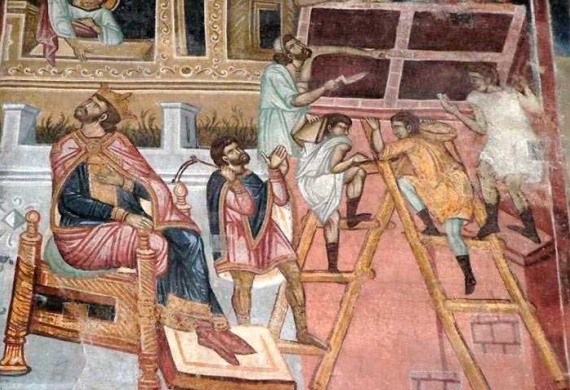(Luke 12:16-21)
The parable in today’s Gospel is a brief, but powerful story. If every person were to learn from it, millions of our fellow human beings would not die from hunger or poverty. In addition, many rich people would not suffer from agonizing worry and anxiety over their possessions, and maybe save their souls from being lost due to their wealth.
Let’s look at the rich person in the parable. God gave him fruitful land with an amazing yield of crops. Instead of rejoicing in God and glorifying him for this blessing, he was overwhelmed with worry: “What shall I do, since I have no room to store my crops?” (verse 17).
“What shall I do?” People who say this usually have no house to live in, no clothes to protect them from the weather, or bread to give to their children to keep them alive! But a rich person who suddenly becomes even richer saying these same words is outrageous. Sadly, this is our reality. There are countless examples of wealthy people who suffer serious psychological problems and anxiety over how to maintain and increase their wealth. Those who cling to material things and are constantly trying to get more will suffer a great fall. “Rich men turned poor and went hungry” (Psalm 33:11), and the Apostle Paul warns us: “Those who desire to be rich fall into temptation and a snare, and into many foolish and harmful lusts which drown men in destruction and perdition” (1 Timothy 6:9).
But the great misery of the rich in the parable would come quickly. While he wondered where he would store his crop, and dreamed of living high for many years, he heard the voice from Heaven say to him, “Fool! This night your soul will be required of you; then whose will those things be which you have provided?” (verse 20). By acting in this way, the rich person loses both his earthly goods and the treasure of Heaven. This treasure is denied because the rich person, due to their greed, was not able to do the good works needed to get it.
Maybe the rich would ask: “Why am I dying now? What did I do wrong? There was no stealing here, and this is what I have earned. It’s mine!”
Here we see the great mistake, both of the rich in the parable and of every person of wealth. They are under the illusion that the riches they possess are for them alone. They do not understand that God has given them this to share it. This goes back to the teaching of St. Basil the Great: You are a keeper of your fellow human beings. Do not think that all this was given to you for yourself only…For all this, you will be asked directly….Do you think that this is unfair, with so much given to you, and you give nothing to others? The extra food you keep belongs to the person who is hungry. The clothes you have filling your closet are for the naked. The money you get and hide away is for the one who needs it. So much inequality, and so many people in need who could be helped.
In God’s Wisdom, he allows rich people their wealth to benefit not just them, but all people. If everyone just kept what they needed, and gave away the rest, there would be no poor in the world.
My brothers and sisters in Christ, let us apply the teaching of the Apostle Paul: “Having food and clothing, with these we shall be content (1 Timothy 6:8). Let us make sure that we are rich in what will earn us our permanent riches in Heaven. Amen.
Metropolitan Sotirios of Pisidia

